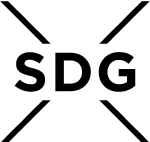Religion is a major cultural, social, political, and economic factor in many official
development assistance (ODA) recipient countries. Understanding religious dynamics and the role of faith communities and actors is crucial for sustainable development. This policy paper is drawn from findings based on a research project funded by the UK Arts and Humanities Research Council (AHRC) titled ‘Keeping Faith in 2030: Religions and the Sustainable Development Goals’ The paper emphasises on the development discourse and practice today that acknowledges the
significant role that religion plays in this area and discusses the Greater portions of development aid now channelled via faith-based initiatives/organisations, and the importance of religion to be recognised as a resource for – rather than as an obstacle to – development. Some of its main recommendations are summarised below:
Faith-actors should not be brought in solely as ‘religious voices’ but as development partners like all others
Members of NGOs and governments should increase their religious literacy, not only in terms of the history, teachings and practices of different world religions, but also with respect to how religion actually manifests in diverse settings.
Identifying which faith actors to engage with according to their relative background and expertise, and on what issues, should be given careful consideration.
Perceived tensions between certain SDG goals or targets and religious values should be approached by recognising that faith actors can be important mediators for gaining a more specific understanding of such tensions and finding ways of addressing them.
In building partnerships with faith actors, it is important that those actors are listened to and included on their terms rather than being instrumentalised to achieve pre-defined development goals.
More investment is needed to spread knowledge about the SDG agenda to local faith actors to enable them to participate in the international conversation and mobilise local resources for the sustainable development agenda.
Source: UN Digital Library
People Involved: Maysoon Melek, Rita Raj, Rose Nalwadda, Rahima Kajungu, Richard Lutwama, Professor Parviz Piran and staff from the UNFPA India office.

